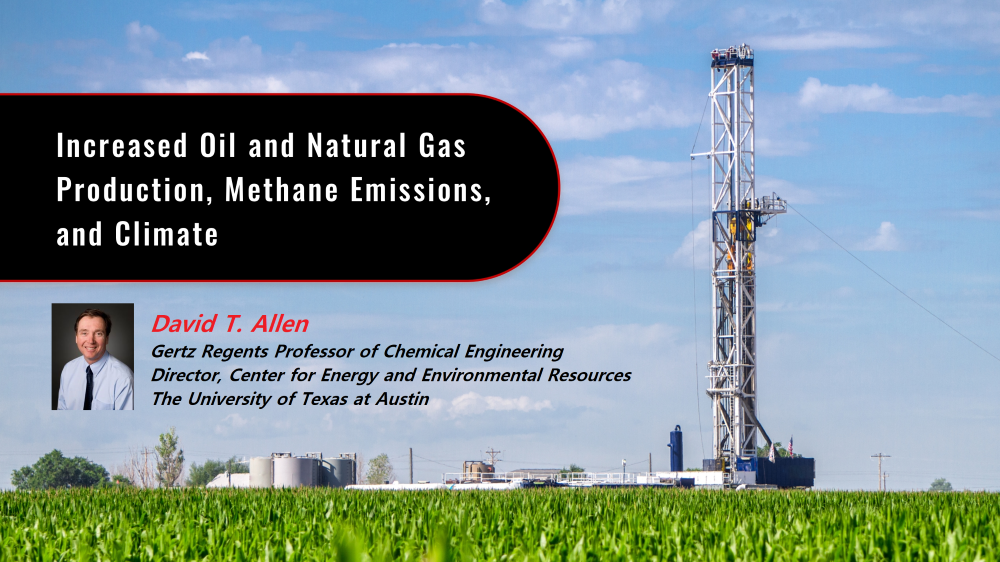Illinois Tech’s Wanger Institute for Sustainable Energy Research (WISER) and Armour College of Engineering, with the Chicago Council on Science and Technology (C2ST) will present the 2022 Distinguished Lecturer David T. Allen.
Wed., March 23, 2022
3:30–4:30 p.m. CT
Wishnick Hall Auditorium, Room 113
3255 South Dearborn Street, Chicago
(Lecture will also be live-streamed on IIT Youtube channel.)
–Click here for additional program information.
–Access the live-streamed program by clicking this YOUTUBE link.
–You may also participate in the chat Q&A session or make a comment by clicking here.
The Illinois Tech faculty host is Professor Hamid Arastoopour, WISER Director and Linden Professor of Engineering (arastoopour@iit.edu, 630.988.9735).
Please contact Professor Arastoopour or Peg Murphy (murphym@iit.edu, 708.268.1458) if you have questions or need additional information.
ABSTRACT
Hydrocarbon products derived from horizontal drilling and hydraulic fracturing of shale formations (shale gas and shale oil) have greatly expanded U.S. oil and natural gas production, and have made the United States the world’s largest natural gas and petroleum producer. Collectively, these resources have transformed North America’s energy landscape. However, the environmental impacts associated with ‘‘fracking’’ for shale gas and oil have made the process controversial. This presentation will focus on one of the environmental issues associated with shale gas and oil production: the emissions of methane, a potent greenhouse gas. Data from recent field studies will be summarized and the role of “super-emitting” sources will be described. Super-emitting sources are often due to equipment malfunction, so quickly identifying and repairing these sources can significantly reduce emissions. The potential role of continuous emission measurements in identifying super-emitting sources will be described and the design and deployment of a first of its kind methane sensor network in the Permian Basin of west Texas will be discussed. Finally, the presentation will conclude with a discussion of sustainability in engineering education. Most engineering programs in the United States now incorporate concepts of sustainability, in some way, into their educational programs. The diverse educational practices used to address sustainability in engineering curricula will be described. The summary will be based on a survey of more than 1,500 Department Chairs and Program Heads from 366 engineering colleges in the United States and will be integrated into a proposed body of knowledge on sustainability, suitable for incorporation into engineering curricula.
BIO
Dr. David Allen is the Gertz Regents Professor of Chemical Engineering, and the Director of the Center for Energy and Environmental Resources, at The University of Texas at Austin. Dr. Allen has been a lead investigator for multiple air quality measurement studies, including studies that made some of the first measurements of methane emissions from unconventional oil and gas production. He has served on a variety of governmental advisory panels and, from 2012 to 2015, chaired the U.S. Environmental Protection Agency’s Science Advisory Board. In 2017, he was elected to the U.S. National Academy of Engineering and in 2020 he received the Eni Energy Transition Award. Dr. Allen received his B.S. degree in Chemical Engineering from Cornell University in 1979. His M.S. and Ph.D. degrees in Chemical Engineering were awarded by the California Institute of Technology in 1981 and 1983.

